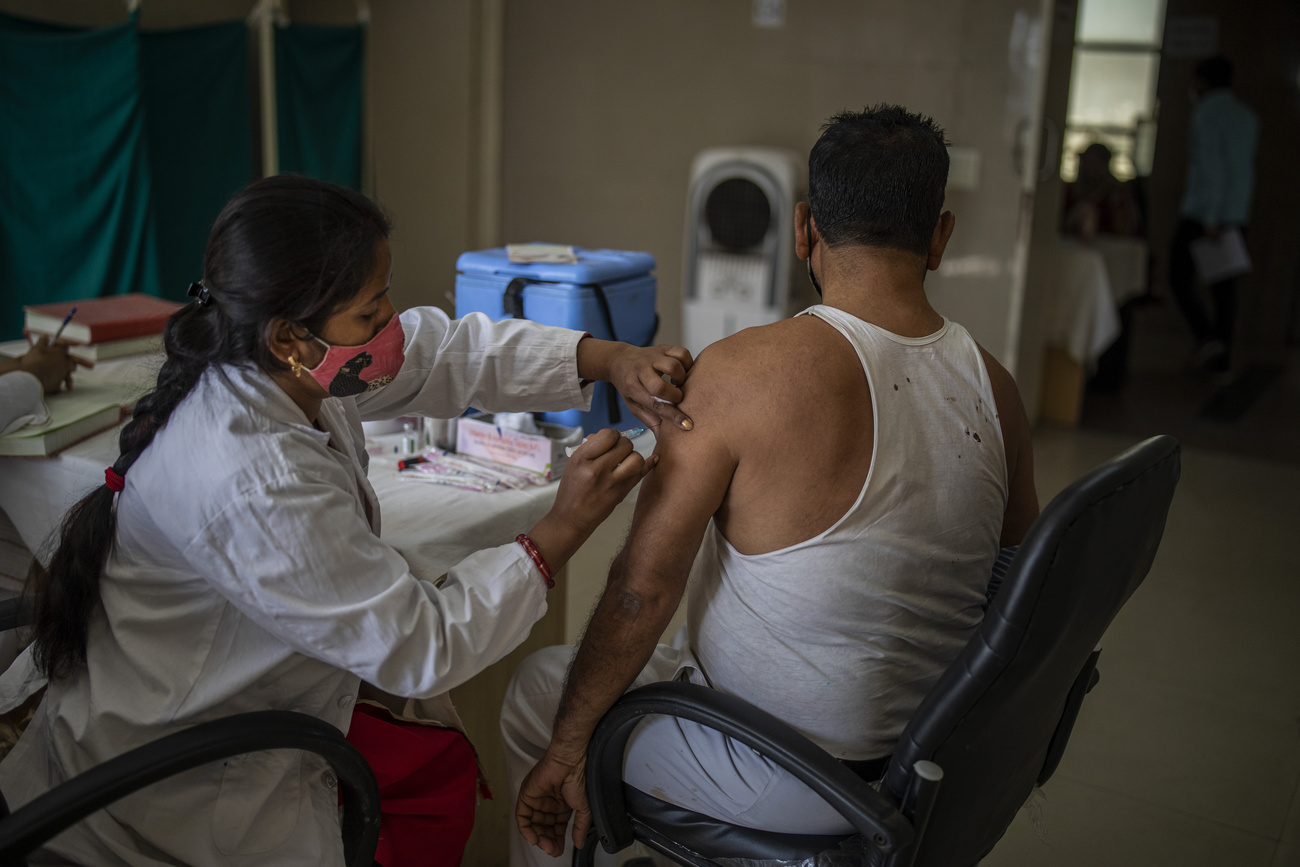
Indian foreign minister: ‘Covid exposed fissures and weaknesses like a stress test’

Speaking at the St Gallen Symposium in Switzerland, Indian Foreign Minister Subrahmanyam Jaishankar has shared the Indian viewpoint on the pandemic and the consequences for international relations.
“Nothing can prepare you for this kind of a surge,” Jaishankar said on Friday at the annual event organised by the University of St Gallen. The former diplomat spoke via video link from London, where he was representing his country at the G7 meeting.
With more than 21 million confirmed cases of coronavirus, India has become the global epicentre of the pandemic in recent weeks. Official tallies put the country’s death toll at over 230,000 but experts say the real figure is much higher.
“We have fallen short in some respects,” Jaishankar admitted. He said the focus for India now is to secure and deliver oxygen and medicines, as well as expand vaccination across the country. However, he pointed out that India had learned some lessons from the first wave of the pandemic.
“Last time it was shortage of PPE and ventilators but not this time,” he said.
Indian Prime Minister Narendra Modi is under pressure to impose a harsh nationwide lockdown. He came in for criticism when he announced a 21-day national lockdown in March 2020 with only a few hours’ notice. Jaishankar said that thanks to digitalisation the government transferred money to 400 million bank accounts and provided food to 800 million people last time around.
“Five years ago this would not have been possible,” he said.

Vaccine cooperation
In March, India halted large exports of Covidshield (a local version of the AstraZeneca vaccine) produced by the Serum Institute of India, raising questions abouts its reliability as a global vaccine partner. Jaishankar acknowledged that the intensity of the second wave in India had affected vaccine exports but said India was always “straight” with international partners.
“If you are part of a global supply chain or an international initiative, you always have to take that into account,” he said.
India currently produces fewer than 70 million doses a month of Covidshield and indigenous Covaxin vaccine. According to Jaishankar, India can double production if it receives enough raw materials from abroad. He felt that a lot of the international resources needed in India to produce vaccines were being diverted to North America and Europe.
“Could you have imagined a term like vaccine nationalism two years ago?” he asked.
He also said that ideas like “strategic economy” were becoming more popular. Countries are now open to manufacturing goods within their borders even it is more expensive.
“We never thought essential supplies would be disrupted,” he said.
Referring to the impact of the two world wars, Jaishankar likened the pandemic to a global conflict.
“Our sense of what security means has changed. It is not just about defence, politics or intelligence anymore,” he said. “Covid exposed fissures and weaknesses like a stress test.”
Swiss role
Switzerland is helping India confront its brutal second wave of the Covid-19 pandemic with more than 13 tonnes of supplies.
A cargo plane from Zurich arrived at New Delhi airport on Friday, bringing 600 oxygen concentrators and 50 respirators for intensive care. The oxygen concentrators were bought on the private market by the foreign ministry’s Swiss Humanitarian Aid Unit.
Switzerland’s defence ministry supplied the respirators after checking that they were not needed to support the Swiss health system. The aid also includes body bags.
However, Switzerland was lukewarm in its response to US support for a temporary waiver of intellectual property (IP) protections on Covid-19 vaccines. US Trade Representative Katherine Tai made the announcement on Wednesday and said her country would work with the Geneva-based World Trade Organisation (WTO) to “make that happen”. The Swiss economics ministry said the US announcement was “significant”, but that waiving IP rights would not guarantee “fair, affordable, and fast” access to vaccines and other technology against Covid-19.

More
Coronavirus: the situation in Switzerland

In compliance with the JTI standards
More: SWI swissinfo.ch certified by the Journalism Trust Initiative






























You can find an overview of ongoing debates with our journalists here . Please join us!
If you want to start a conversation about a topic raised in this article or want to report factual errors, email us at english@swissinfo.ch.